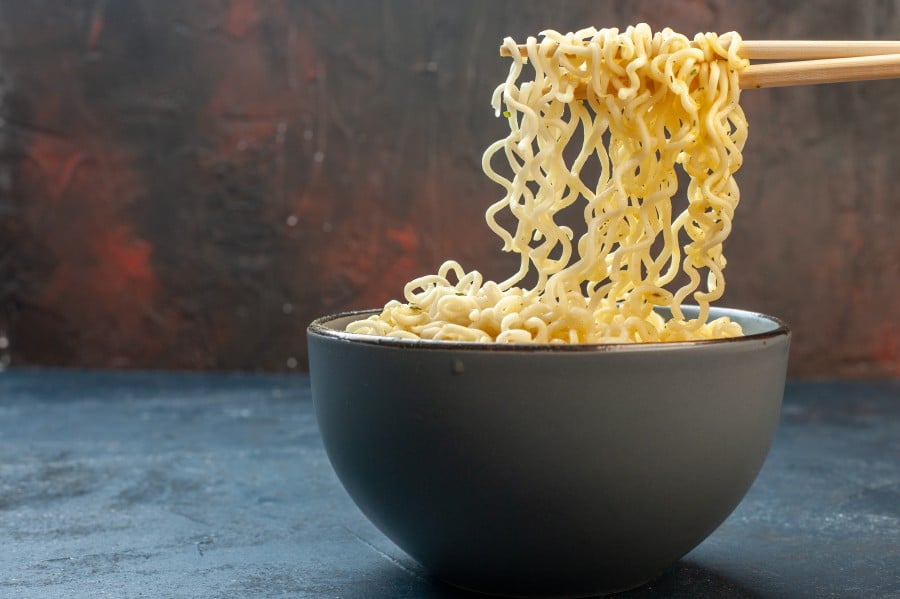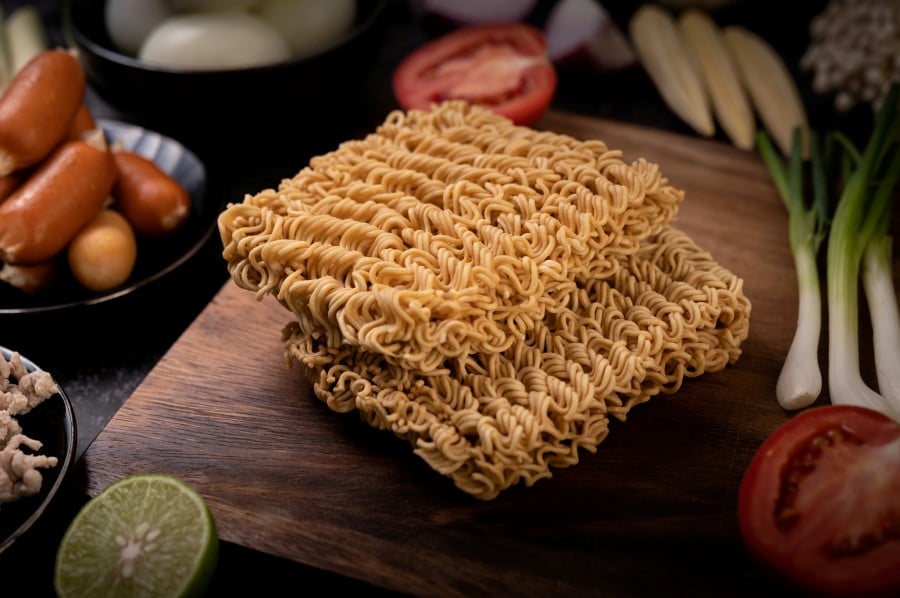INSTANT noodles are a staple in Malaysian homes. The fact that they're high in saturated fat and salt is well documented, but they continue to be consumed for taste and convenience.
The recent recall of two brands of instant noodles due to cancer-causing agents in the products, has once again thrown the spotlight on the health impact of instant noodles.
The Health Ministry has issued a recall of "'Ah Lai White Curry Noodles" as well as "Indomie: Special Chicken Flavour" over reports that the products contained ethylene oxide. Ethylene oxide is a chemical compound that is carcinogenic and commonly used to kill pests.
Avisena Women's and Children's Specialist Hospital clinical dietitian, Rozanna M Rosly, says at room temperature, ethylene oxide is a flammable colourless gas, with a sweet odour.
"It is often used as a pesticide and sterilising agent, but is considered a health risk if remnants remain on food products," she says.
The United States Environmental Protection Agency considers ethylene oxide to be carcinogenic to humans by the "inhalation route", with exposure linked to an increased risk of lymphoid cancer and breast cancer.
Rozanna says the main ingredients in instant noodles are typically flour, starch, water, salt, and/or a salt substitute known as kansui, a type of alkaline mineral water that contains sodium carbonate and usually potassium carbonate.
"Palm oil is also a common ingredient as instant noodles were originally produced by flash frying. However, nowadays, air-dried noodles are also available."
Instant noodles also come with flavouring packets that contain seasoning, salt and monosodium glutamate (MSG).

The world's first instant noodles were made by Momofuku Ando, a Taiwanese-Japanese inventor and businessman who founded Nissin Food Products Co. Ltd. Since then, they have become a much loved and widely eaten food the world over.
According to 2021 data from the World Instant Noodles Association, the top three countries with the most demand for instant noodles are China/Hong Kong, followed by Indonesia and Vietnam. Malaysia ranks 14th. Around 100 billion servings are consumed annually around the world.
Rozanna says instant noodles are loaded with calories, fat and sodium but little fibre, protein, vitamins and minerals
"This will lead to a high risk of getting metabolic syndrome. Furthermore, long term consumption of instant noodles as a staple food will lead to malnutrition as it lacks other nutrients."
Some studies have shown that regular consumption of instant noodles is associated with poor overall diet quality.
In one study, the diets of those who consumed instant noodles were compared to those who didn't. The instant noodle consumers were found to have a significantly decreased intake of protein, calcium, vitamin C, phosphorus, iron, niacin, and vitamin A. They also had an increased intake of sodium and calories.

EAT LESS AND CONSUME WISELY
*Do not eat everyday and limit consumption to once a week.
*Portion control (eat a smaller amount).
*Choose those labelled as lower calories or low sodium/fat.
*Choose instant noodles made from whole grains to increase fibre content and boost feelings of fullness.
*Avoid putting in all the soup seasoning in the broth and/or not finish the soup to reduce sodium intake.
*Use garlic powder, curry powder, dried ginger and red pepper flakes to enhance flavour. Add fresh onions, garlic, coriander, spring onions and parsley just before serving for taste enhancement.
*Toss cooked and drained noodles with toasted sesame oil or add trim coconut milk to the broth for added richness.
*Add vegetables to increase fibre as well as vitamins and minerals.
*Add chicken breast, lean meat, egg, tofu or prawns to increase protein intake.

FOR CHILDREN
*Boil and drain the noodles to drain them of excess salt and fat.
*Serve noodles with home-cooked broth which has less salt instead of the soup seasoning that comes with the noodles.
*Add fresh vegetables like carrots, spinach, cabbage or green beans to add nutritional value to the bowl of instant noodles.
*When buying instant noodles, look for ones that are low in sodium and saturated fat. Percentages mentioned in the packet are based on adult requirements, so choose ones that contain less harmful ingredients.
*Ideally go for other options instead of instant noodles, but if you have to serve it, control and limit the number of servings a month.




